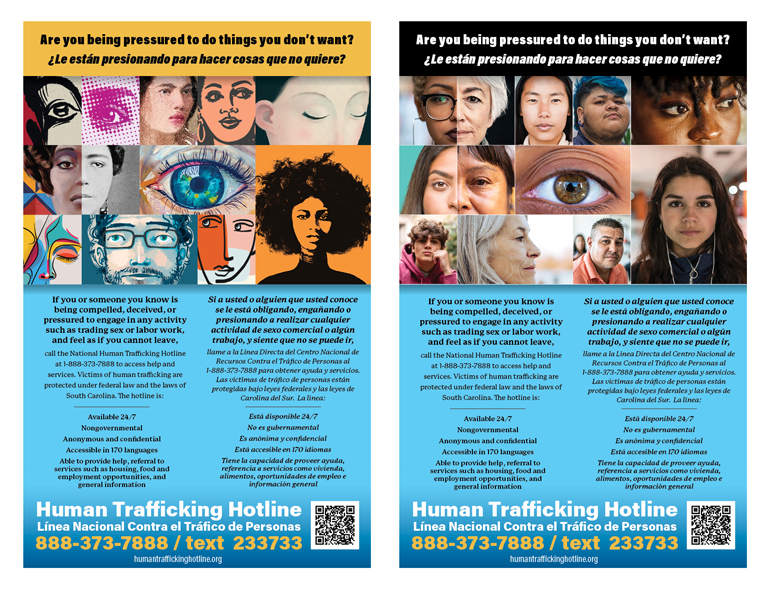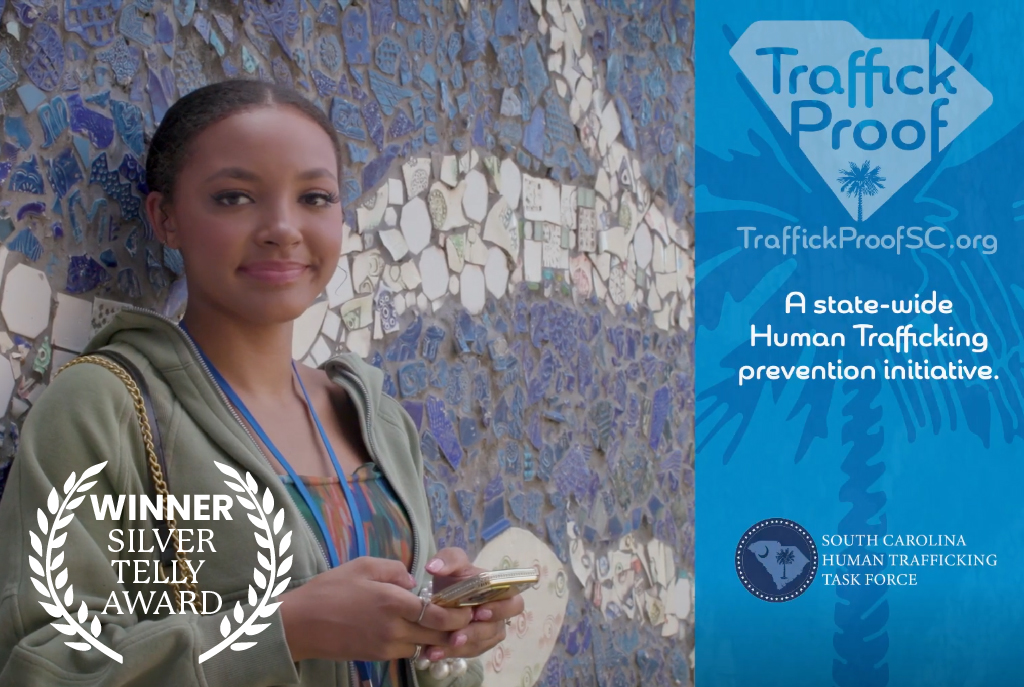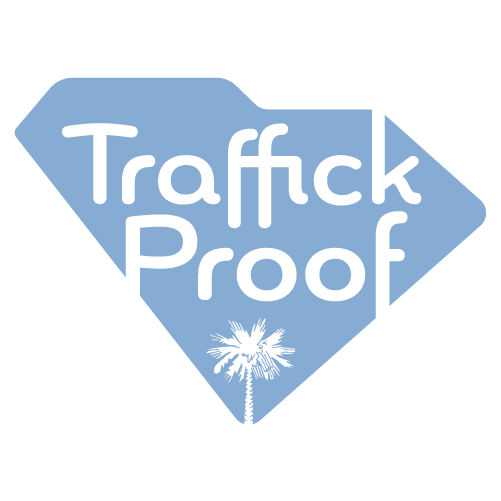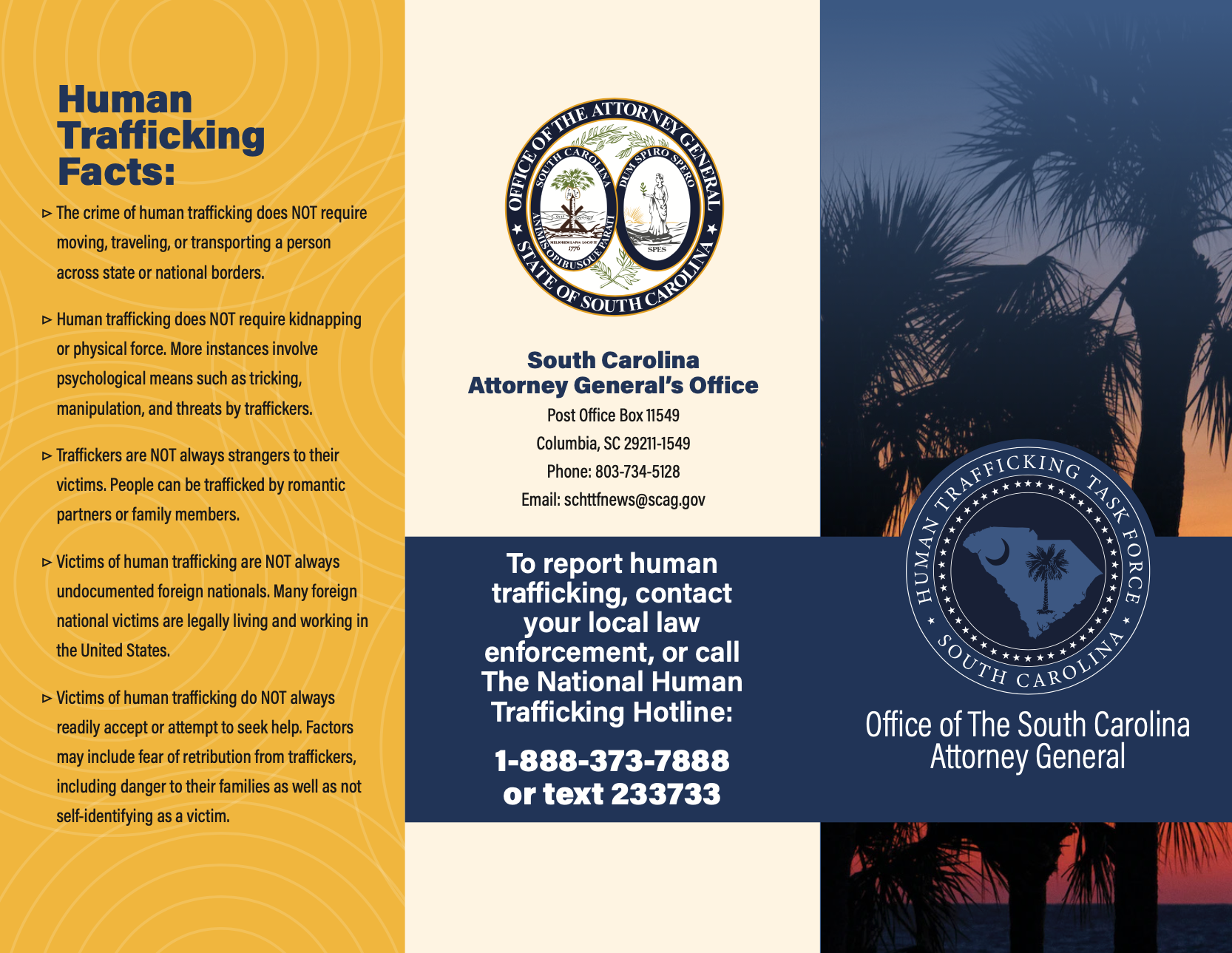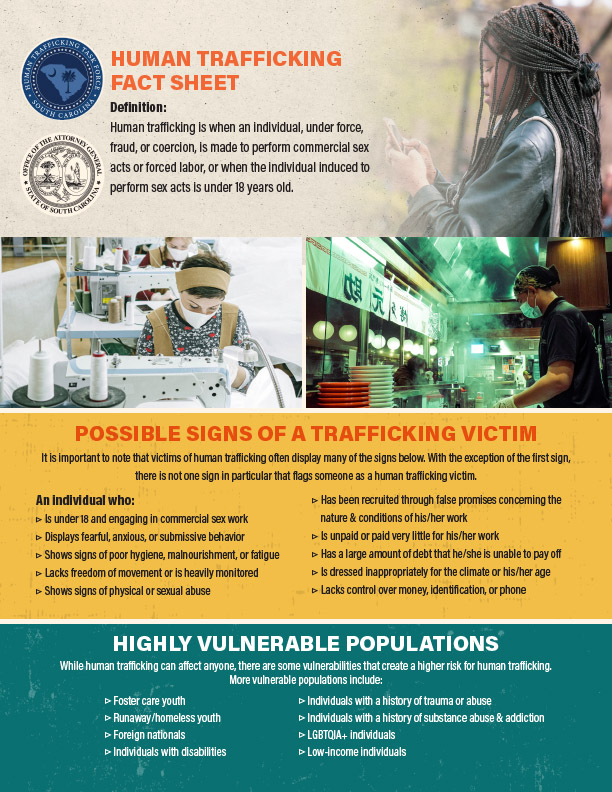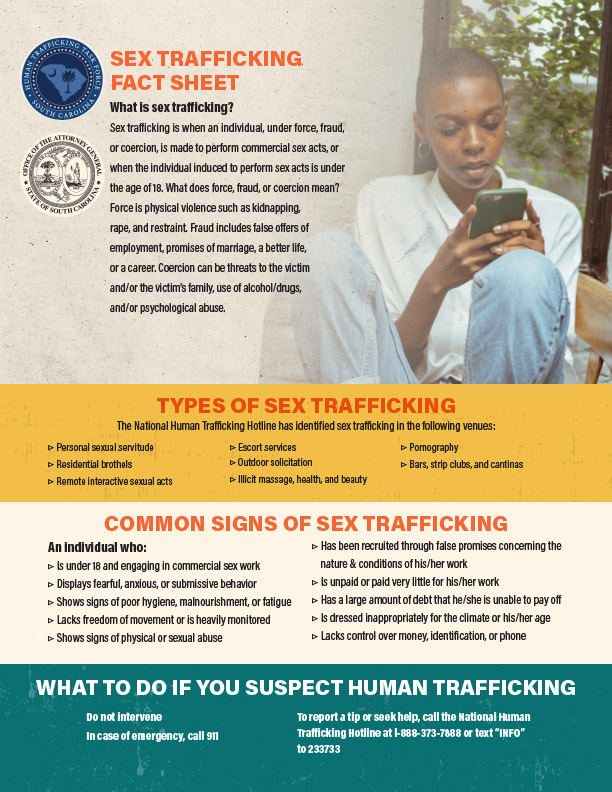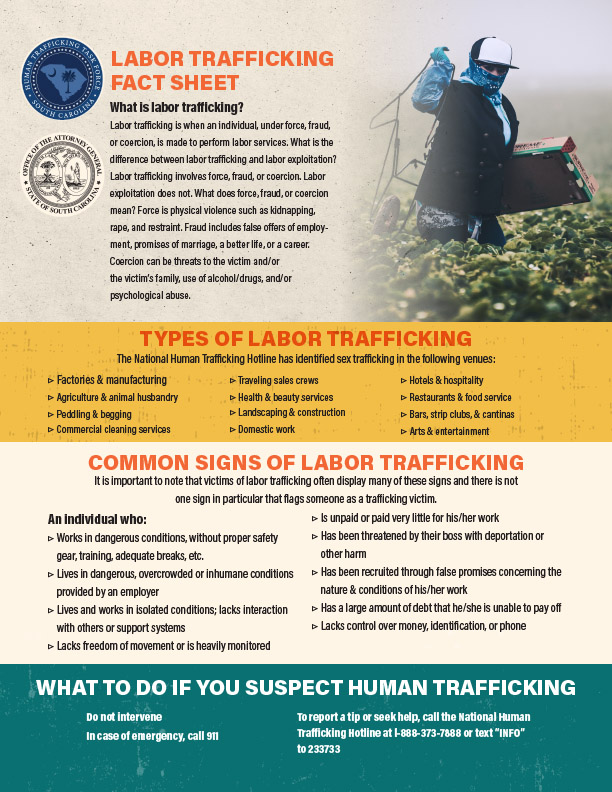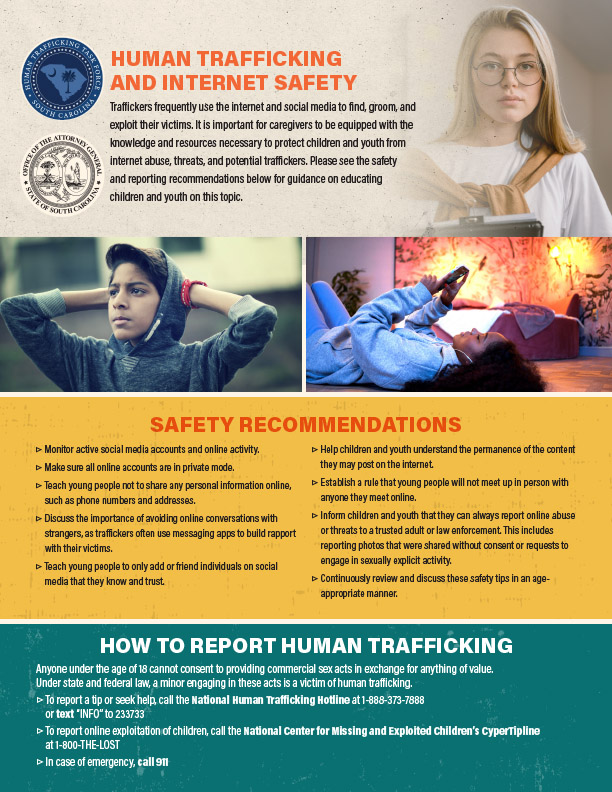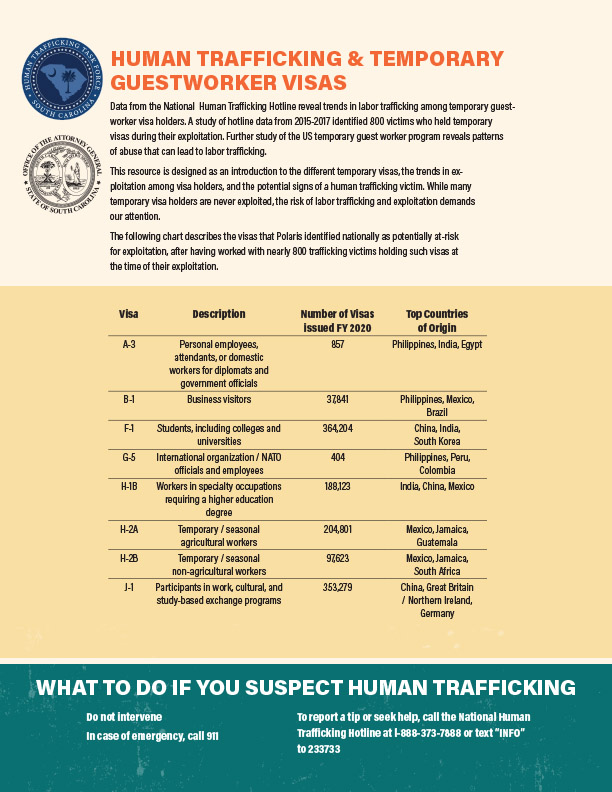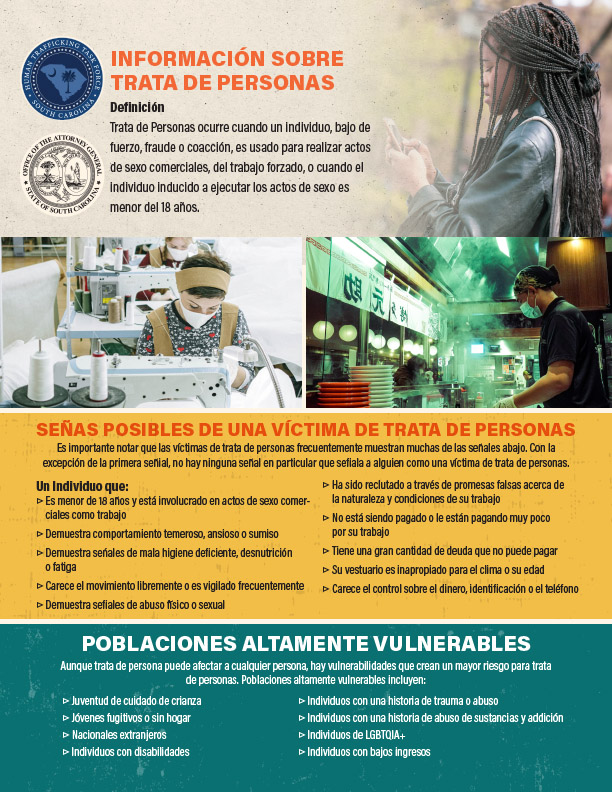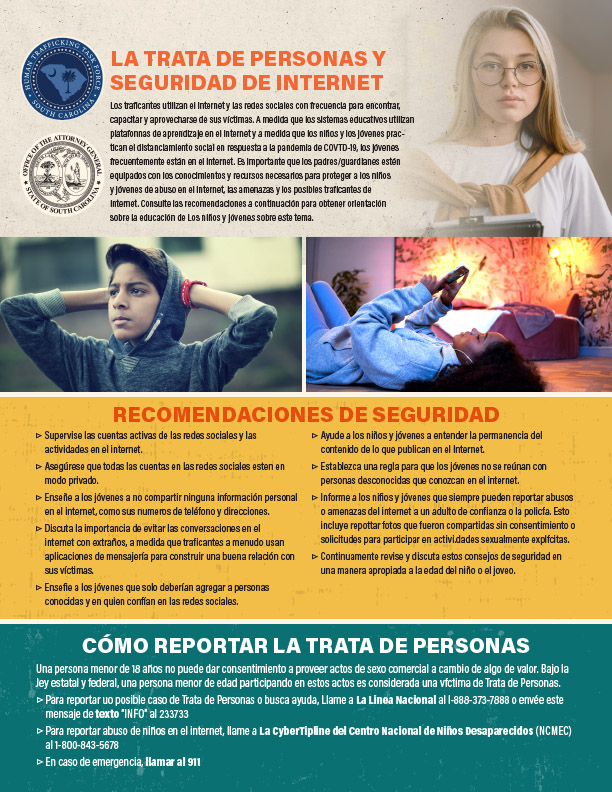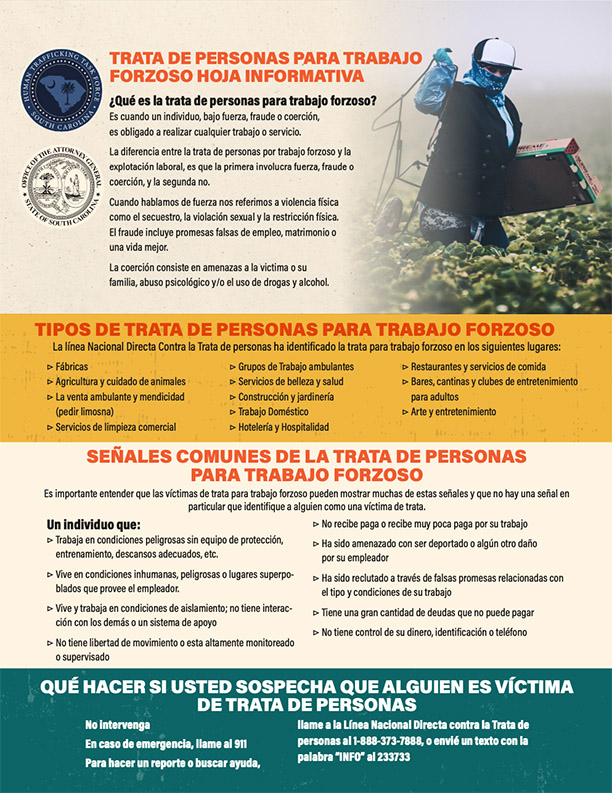In partnership with SC ETV and Public Radio (SCETV), the State Task Force developed TraffickProofSC, a series of free, age-appropriate, educational videos and curricula catered to middle and high school students. This initiative serves as the first statewide human trafficking prevention education curricula highlighting the importance of educating youth and their families on the realities of human trafficking.
Middle and High School Students
Recognizing key indicators of human trafficking is one of the first steps in prevention. As such, the TraffickProofSC curriculum teaches students how to identify different types of human trafficking and associated warning signs, methods used by traffickers to exploit victims, and what to do if they think someone is exploited. Educators and students are also provided with tools and resources available to assist those who are or may be vulnerable to being trafficked.
The curriculum includes:
- Human Trafficking Overview: What is Human Trafficking?
- Staying Safe Online
- Labor Trafficking
- Sex Trafficking
Facilitator Training Opportunities
Educators and CAC staff interested in becoming a facilitator of TraffickProofSC can request a training through the SCETV link below. Those who participate will receive instruction on how to deliver the content and be provided with a facilitator’s guide to assist them with training topics and class activities.
SCETV Link
State Task Force Support
If you would prefer to have a Task Force staff member facilitate the curriculum at your middle or high school, please complete the request form linked below.
Link to Form
TraffickProofSC Newsletter
If you would like to also receive the new TraffickProofSC newsletter, please sign up below.
Newsletter



